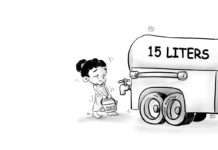BY RONQUILLO TOLENTINO
SUCCINCTLY has the Supreme Court explained forum shopping in Emilio S. Young vs John Keng Seng A.K.A. John Sy in G.R. No.143464 dated March 5, 2003, thus: “More accurately, however, forum shopping is the institution of two or more suits in different courts, either simultaneously or successively, in order to ask the courts to rule on the same or related causes and/or to grant the same or substantially the same reliefs. It is an act of malpractice that is prohibited and condemned because it trifles with the courts and abuses their processes. It degrades the administration of justice and adds to the already congested court dockets.”
To stamp out this abominable practice of trifling with the administration of justice, the Supreme Court promulgated Administrative Circulars 28-91 which are now embodied as Section 5 of Rule 7, of the Rules of Court.
Supreme Court Administrative Circular No. 04-94 amended Administrative Circular No. 28-91 and requires the plaintiff or principal party to execute a certification against forum shopping to be simultaneously filed with the complaint or initially pleading.
Section 5 of Rule 7 of the Rules of Court provides: “Certification against forum shopping – The plaintiff or principal party shall certify under oath in the complaint or other initiatory pleading asserting a claim for relief, or in a sworn certification annexed thereto and simultaneously filed therewith
“(a) that he has not theretofore commenced any action or filed any claim involving the same issues in any court, tribunal, or quasi-judicial agency and, to the best of his knowledge, no such action or claim is pending therein
“(b) If there is such other pending action or claim, a complete statement of the present status thereof, and
“(c) If he should thereafter learn that the same or similar action has been filed or is pending, he shall report that fact within five days therefrom to the court wherein his aforesaid complaint or initiatory pleading has been filed.
“Failure to comply with the foregoing requirements shall not be curable by mere amendment of the complaint or other initiatory pleading but shall vexation be caused for the dismissal of the case without prejudice, unless otherwise provided upon motion and after hearing. The submission of a false certification or non-compliance with any of the undertaking therein shall constitute indirect contempt of court, without prejudice to the corresponding administrative and criminal actions. If these acts of the party or his counsel clearly constitute forum shopping, the same shall be ground for summary dismissal with prejudice and shall constitute direct contempt, as well as a cause for administrative sanctions.”
The Supreme Court, in the case of Alonso, et al. vs Relamida, En Banc, AC No. 8481, August 3, 2010 suspended Atty. Ibaro B. Relamida Jr. for violating the Rules on Res Judicata and Forum Shopping.
The Supreme Court suspended him for six months from the practice of law and admonished that a repetition of the same or similar act will be dealt with accordingly.
In dismissing a case based on forum shopping, it is important to consider the “vexation caused (to) the courts and party litigants” by a party who asks different courts to rule on the same or related causes or grant the same or substantially the same reliefs. Thus, to determine whether a party violated the rule against forum shopping, the most important factor to ask is whether the elements of litis pendential are present, or whether a final judgment in one case will amount to res judicata in another. Otherwise stated, the test for determining forum shopping is whether in the two (or more) cases pending, there is identity of parties rights or causes of action, and reliefs sought.
The Supreme Court reminded lawyers against forum shopping when it said in Alonso, et al. vs Relamida, “All lawyers must bear in mind that their oaths are neither mere words nor empty formality. When they take their oath as lawyers, they dedicate their lives to the pursuit of justice. They accept the sacred trust to uphold the laws of the land. As the first Canon of the Code of Professional Responsibility states: ‘(a) lawyer shall uphold the Constitution, obey the laws of the land and promote respect for law and legal processes.’ Moreover, according to the lawyer’s oath they took, lawyers should ‘not wittingly or willingly promote or sue any groundless, false or unlawful suit, nor give aid or consent t the same.’”
***
Although 2016 may be quite far away to many, the presidential campaign by would-be presidential candidates has already started. Just read newspapers newspapers and listen to the broadcast media./PN



